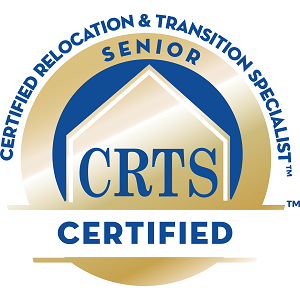Senior Mental Health Care: A Guide for Families
As we age, our mental health becomes an increasingly critical aspect of our overall well-being. Aging can bring about unique challenges, from dealing with losses to adapting to changes in health and lifestyle. For seniors, these challenges can sometimes lead to feelings of loneliness, anxiety, or depression. As someone who cares deeply about an aging loved one, you may find yourself looking for ways to support senior mental health care and ensure their golden years are filled with happiness, peace, and fulfillment.
In this guide, we will explore the unique mental health challenges seniors face, provide practical tips for supporting their emotional well-being, and discuss the vital role of professional care in addressing mental health concerns. Whether you’re a caregiver, a family member, or a friend, this guide is designed to equip you with the understanding and tools needed to effectively support the mental health of your aging loved ones. So, let’s delve into this essential topic– because mental health matters at every age.
Understanding Mental Health Challenges for Seniors
Navigating the golden years is not just a physical journey but a psychological one as well. As our loved ones age, they may face unique mental health challenges that require understanding, empathy, and appropriate support.
Several factors contribute to mental health challenges in seniors. The loss of loved ones can lead to grief and loneliness. Declining physical ability and independence can result in frustration and lowered self-esteem. Common health issues in old age, such as chronic pain or illness, can lead to anxiety or depression. Moreover, significant life transitions, such as retirement or moving into assisted living, can be stressful and unsettling.
Considering these factors, it’s not surprising that mental health issues are prevalent among seniors. In fact, it’s estimated that about 20% of adults aged 55 and over suffer from some type of mental health concern. These concerns include anxiety, cognitive impairment, and mood disorders like depression.
Despite these issues being quite common, there’s often a sense of stigma around mental health in seniors. Older adults grew up in a time when mental health was rarely discussed, and mental illness was often misunderstood. This can make it hard for seniors to admit they’re struggling and seek help. This is why caregivers and loved ones need to be attentive, understanding, and proactive in starting conversations about mental health.
Senior Mental Health Care Tips for Families
Supporting the mental health of our senior loved ones involves a holistic approach that touches various aspects of their lives. Let’s explore some effective strategies and how you can implement them in caring for your aging loved one.
Providing Emotional Support
Emotional support plays a vital role in boosting the mental health of seniors. It creates a comforting space for seniors to express their feelings and reassures them they’re not alone.
Here’s how to offer emotional support:
- Maintain regular contact: Frequent conversations can ease feelings of isolation and keep you updated on their emotional state.
- Practice active listening: When seniors share their feelings, make sure to listen attentively and validate their emotions. Avoid dismissing their concerns.
- Offer reassurance: Let them know it’s okay to feel upset or anxious and that seeking help is perfectly fine. Reassure them of your support.
- Promote socialization: Encourage engagement in social activities, which can significantly enhance their emotional health.
Remember, your goal isn’t to fix problems but to provide a comforting presence and a listening ear. This understanding can make a huge difference in their lives.
Promoting Healthy Lifestyle Habits
Physical health is closely linked to mental well-being. Maintaining a healthy lifestyle can help seniors manage their mental health better and improve their overall quality of life.
Here are some tips to help seniors adopt healthier habits:
- Balanced diet: Encourage a diet rich in fruits, vegetables, lean protein, and whole grains. These foods provide essential nutrients that boost mood and energy levels.
- Regular exercise: Encourage activities such as walking, swimming, or yoga, which can help maintain physical health and stimulate endorphins, the body’s natural mood boosters.
- Adequate sleep: Make sure seniors are getting enough rest. Poor sleep can contribute to mood disorders and cognitive difficulties.
Exploring Mindfulness and Relaxation Techniques
Mindfulness and relaxation techniques can be powerful tools for managing stress and improving mental health. These methods promote a sense of peace and allow seniors to live in the present moment, reducing feelings of worry and anxiety.
Here are some simple techniques to try:
- Deep breathing: Deep, slow breaths can induce a state of calm, reduce stress, and help manage feelings of anxiety.
- Progressive muscle relaxation: This involves tensing and then relaxing each muscle group in the body, promoting physical relaxation and mental tranquility.
- Mindful walking: Encourage seniors to take leisurely walks, paying attention to their surroundings and the sensations of their bodies, fostering a sense of mindfulness and presence.
- Guided imagery: Listening to calming narratives can create a sense of peace and relaxation, making it easier to manage stress and anxiety.
Incorporating these techniques into a senior’s daily routine can significantly improve their mental health and well-being.
Navigating Professional Mental Health Support
While the support of family and friends is invaluable, there may come a time when professional mental health support becomes necessary. If your loved one is struggling with persistent feelings of sadness or anxiety, or if their mental health is impacting their daily life, it could be time to seek professional help. This doesn’t signify failure but rather the recognition of the complexity of mental health issues and the need for specialized knowledge and care.
Several types of professionals can offer mental health support. Psychologists and psychiatrists can provide therapy and, if needed, medication management. Social workers can connect seniors with community resources, and geriatric psychiatrists specialize in the unique mental health needs of older adults. Just remember, it’s never a sign of weakness to reach out for help – it’s an important step towards ensuring their overall well-being.
The Role of a Care Manager in Supporting Mental Health
Care managers play a significant role in supporting senior mental health. They can provide assessments, help with coordinating care and resources, and work with families to develop an effective care plan. They act as advocates, liaisons, and guides, ensuring that the seniors in their care have access to the support they need to navigate their mental health journey.
At Reflections Management and Care, we understand the unique mental health challenges faced by seniors and their loved ones. Our expert team of care managers can provide the support and resources needed to promote mental health and overall well-being.
If you have concerns about your loved one’s mental health or are looking for guidance in supporting them, don’t hesitate to reach out. Contact us today to learn how we can work together toward a healthier, happier future for your loved one.














